A momentous event occurred on Sunday Oct. 1, 2023, when a commemorative plaque was unveiled for Richard Pierpoint at the lovely Fergus Grand Theatre in Wellington County, just north of Guelph, Ont. One may ask who is Richard Pierpoint? The reason for this plaque is to ensure all Canadians know who this distinguished trailblazer and community leader was who left a significant mark in Canadian history.
Entering the theatre, six display boards highlighted the story of Richard Pierpoint. How in 1760, a 16-year-old boy was captured in West Africa, the Bundu Region now Senegal, taken to America via the Middle Passage where he was sold into slavery to a British soldier for 20 years. Pierpoint served with the Butler’s Rangers Regiment in the American Revolutionary War (1775 to 1783) and received 200 acres of land from the British Crown, in Grantham Township now St. Catharines, Ont., where he lived until 1806.
During the War of 1812, Pierpoint petitioned the Canadian government to create and lead a Corps of Coloured Men. The request was denied but the Canadian militia company was created lead by a White tavern owner, Robert Runchey, known as Captain Runchey’s Company of Coloured Men. Despite being close to 70, Pierpoint joined the Corps as a Private. Following the war, he once again received a land grant of 100 acres for his war effort. This time in the wild and unsettled Garafraxa area now Fergus Ont.
Pierpoint’s goal was to return home to his birthplace. He therefore petitioned the government outlining his life as an enslaved man and loyal solider. However, his request was denied. Richard Pierpoint died at the age of 94 in Sept. 1838. It is believed that he was buried on his land where John Black Public School is located in Fergus.
Dr. Alway then introduced the distinguished guests: Guelph Liberal MP Lloyd Longfield; Millicent Gordon, President of the Centre Wellington Black Committee; Rosemary Sadlier, former President of Ontario Black History Society and Clifton Joseph, Spoken Word Poet.
Guelph Liberal MP Lloyd Longfield, spoke on behalf of the Honourable Steven Guilbeault, Minister of Environment and Climate Change and Minister responsible for Parks Canada, who identified that the story of Richard Pierpoint was documented of his life in war and peace which described how Blacks in Canada endured hardships in the 1880s. He went on to say that the history of Blacks as well as Indigenous needs to be mentioned. “We have a long way to go.” He reiterated Pierpont’s history and stated that the Richard Pierpoint Fly Fishing Nature Reserve is the area where Pierpoint was first granted land. ““It’s through designations like these that we can cast a light on the diversity of our nation’s history.”
Millicent Gordon, founder and president of Centre Wellington Black Committee (CWBC) spoke next. She explained how Richard Pierpoint, one of Canada’s greatest community leaders is finally being honoured who founded the Pierpoint Settlement of early African Canadian settlers in this area. His story of enslavement, solider and community leader is all recorded which was lost through slavery and colonization.
It is the account of his life that inspired Gordon: “He was a true and committed leader who used his own land not for gain but to establish a settlement for the formally enslaved people from both the U.S. and Canada. He wanted to return home to visit with his family in West Africa.” CWBC wrote a proposal to the Upper Grand District School Board to name a school in Richard Pierpoint’s honour. Gordon stated it is “a proud day for Fergus and Canada” with the recognition of the commemorative plaque for Pierpont.
Historian, Author and Past President of the Ontario Black History Society (OBHS) who initiated the celebration of Black History Month and Emancipation Day, Rosemary Sadlier, reported that “this historic occasion comes 185 years after his [Richard Pierpoint’s] death. This significant commemoration of Black history, we long for an understanding of we are.” Sadlier chronicled Pierpoint’s life: “In his 50s Pierpont supported himself as a labour. In 1812 he took up the call to service. How precious was freedom to a former slave?" He cleared five acres of land and erected a house. He founded and erected Fergus. Richard Pierpont died in Dec. 1938.
International known Dub and Poet-at-large Clifton Joseph presented his reinterpretation of the 1821 letter Richard Pierpoint petitioned to the Canadian Government to return to his native home in Bundu.
My only wish is for his Majesty government to grant the move, to return to my
native settlement so I write to Kings’ government this July 1821 to listen…
I wish to grant me the means to proceed to England then from thence to a
settlement near Gambia or central region and whence I can return to Bundu,
the land of gold. Because you stole my life, took me from my wife, cause my family
strife, stuck in my heart a knife, you cast my people into slavery, you stole the wealth
of my country, and now you give me the repudiation for my overdue repatriation.
So please your Majesty, listen to this petitioner’s plea....
Related Links:
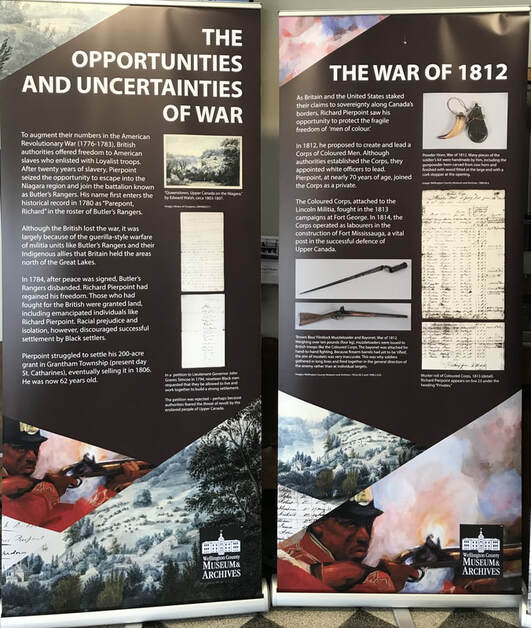
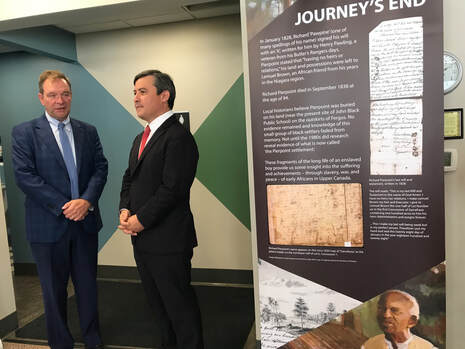
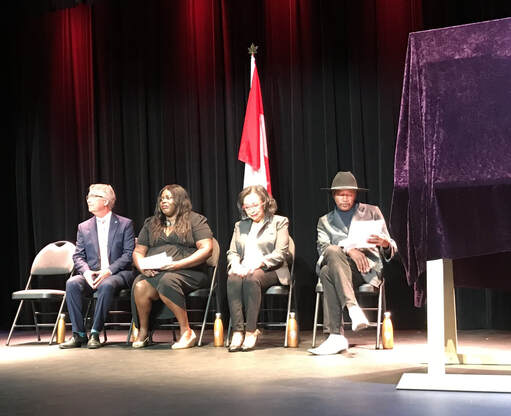
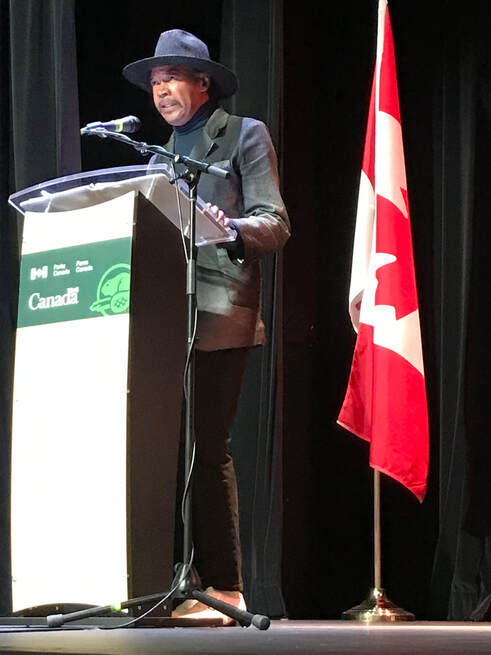
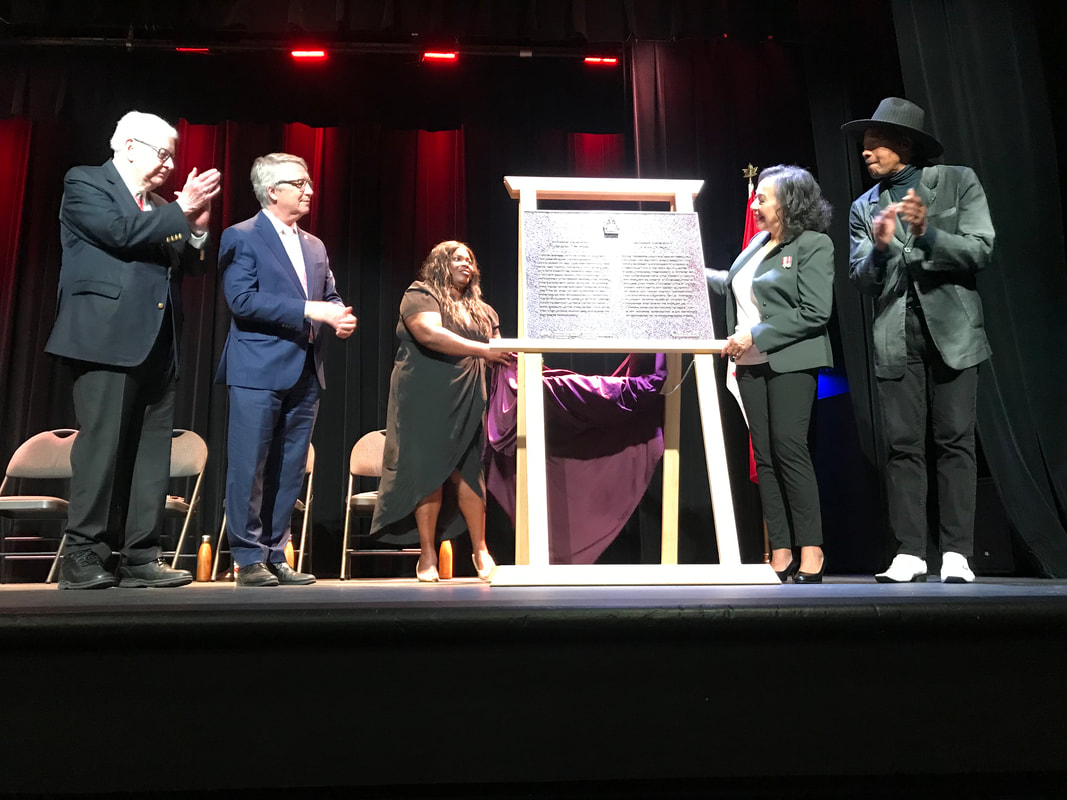
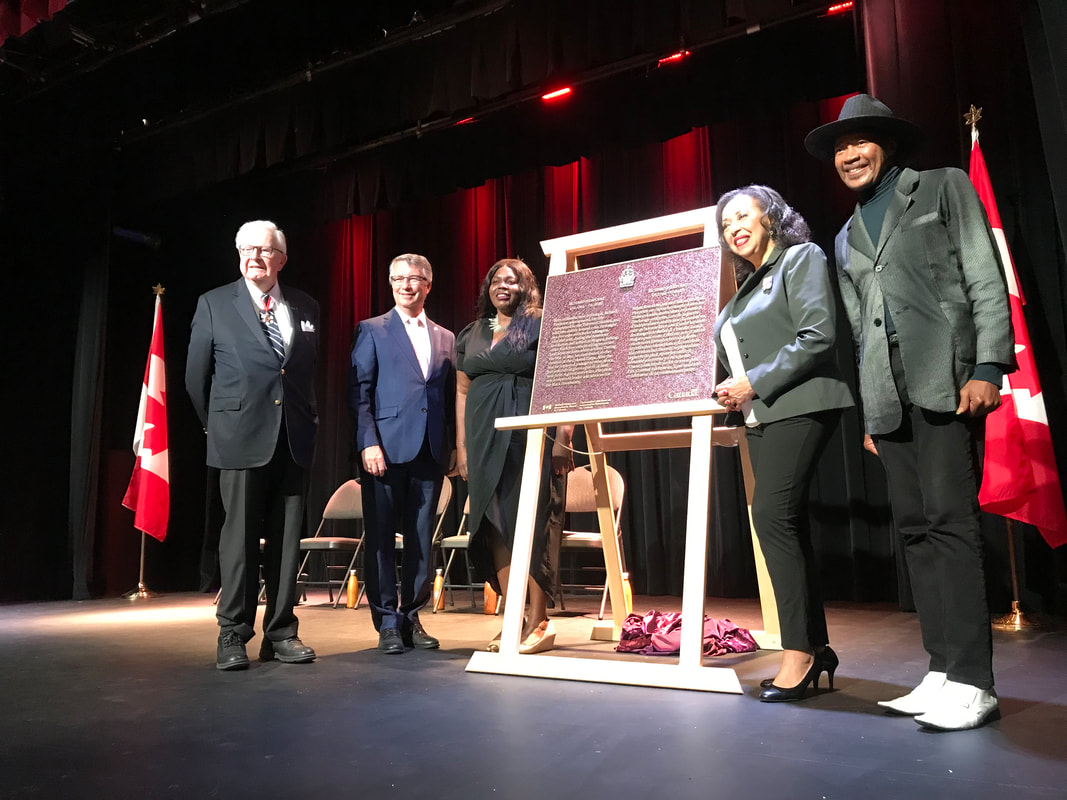
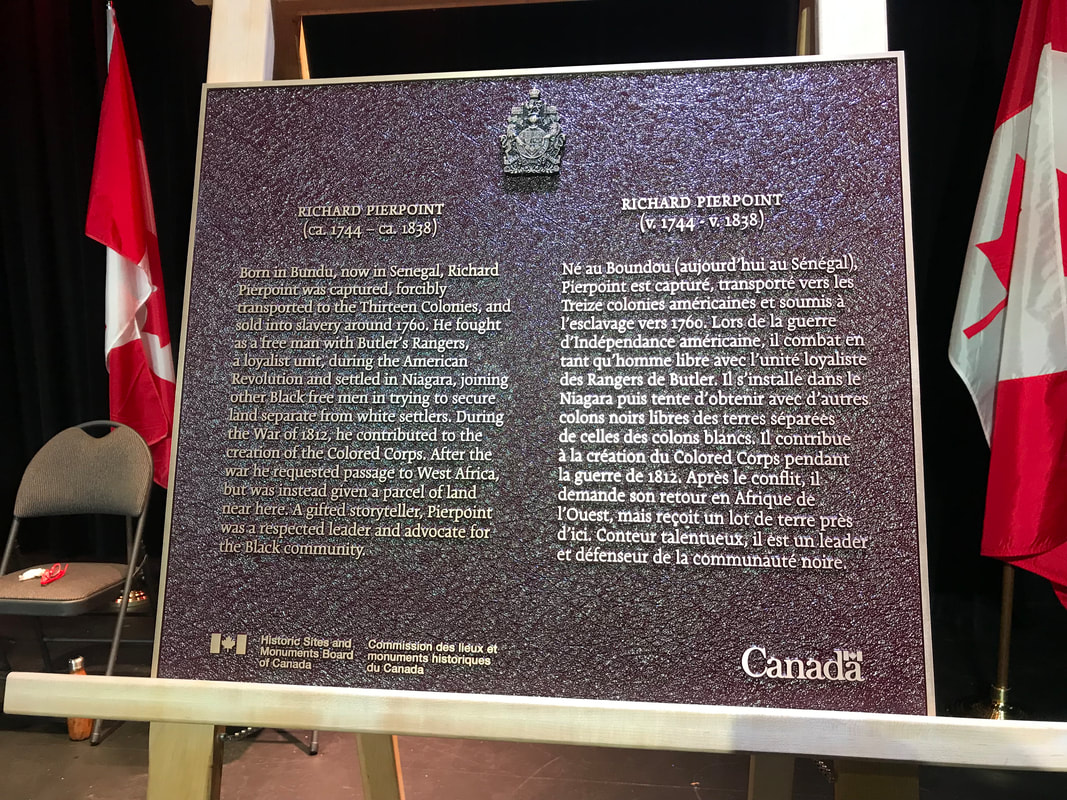
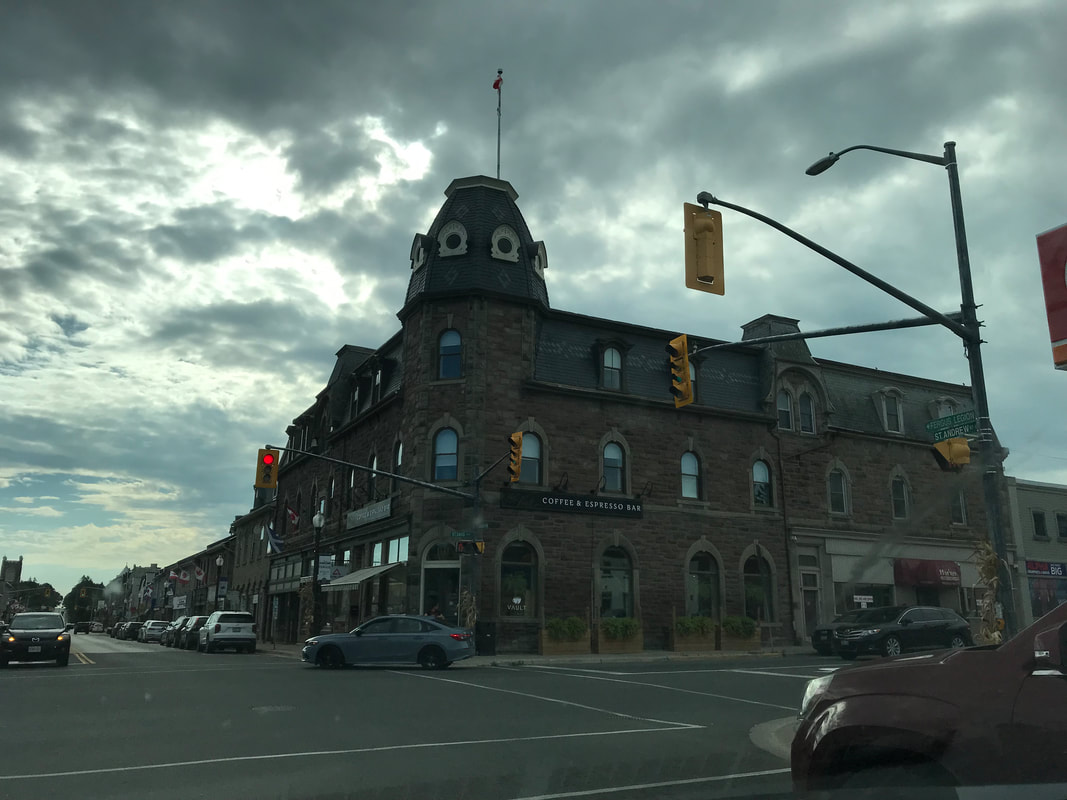
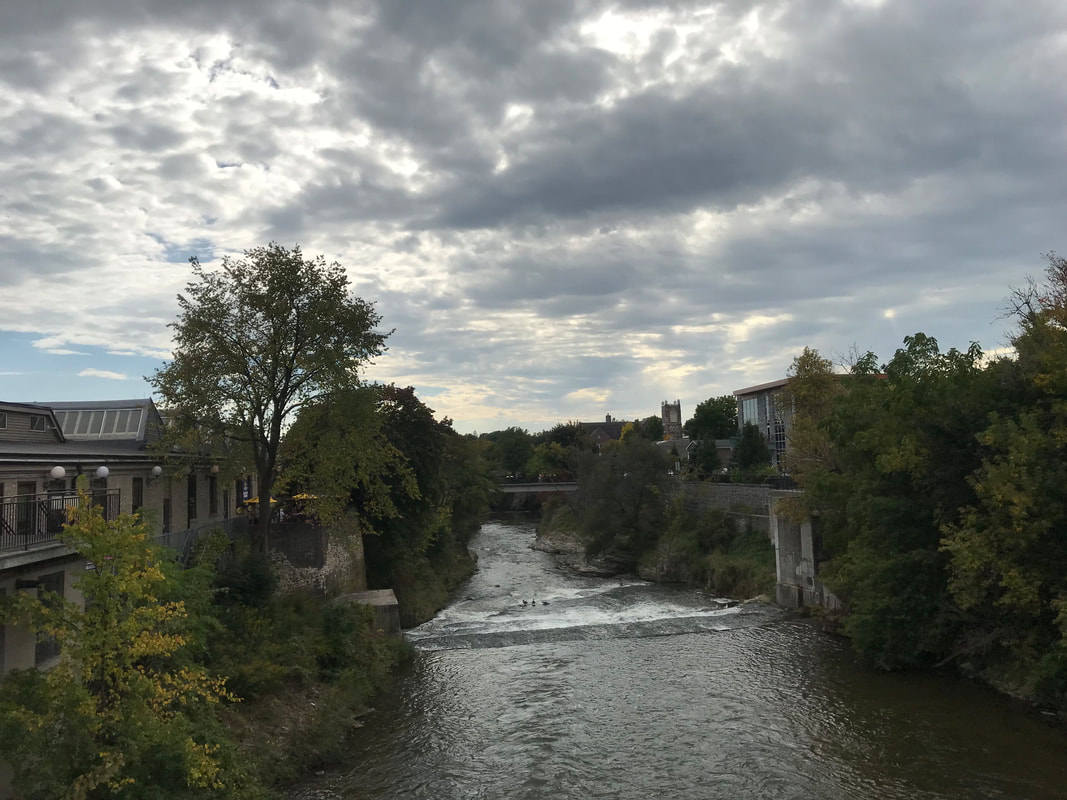
 RSS Feed
RSS Feed
